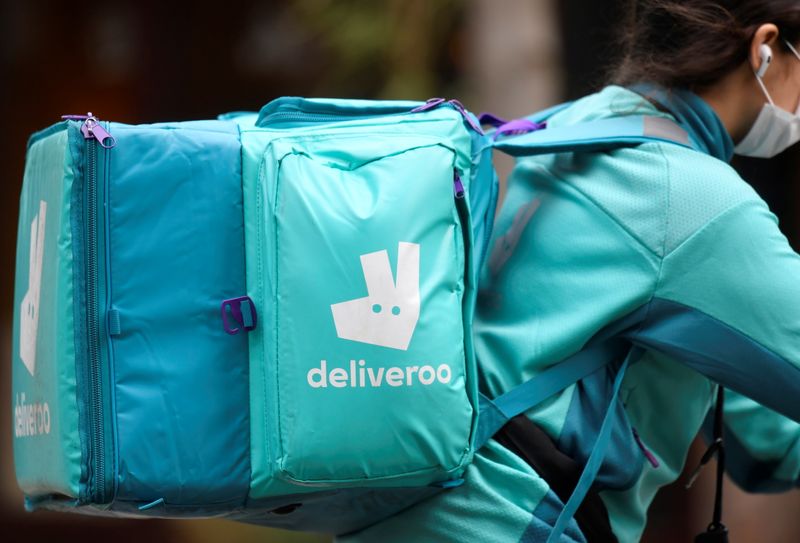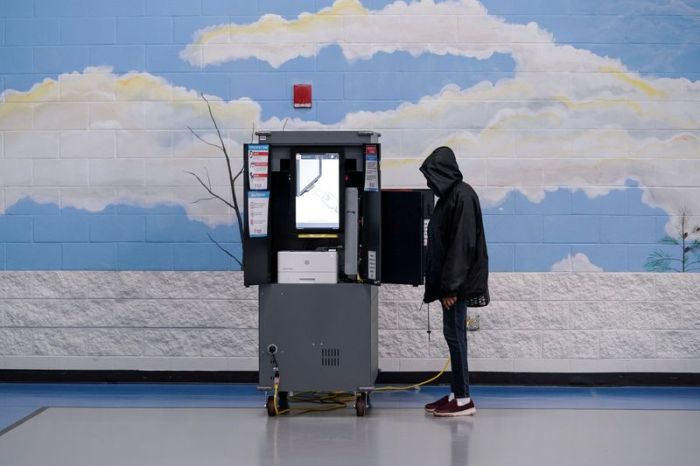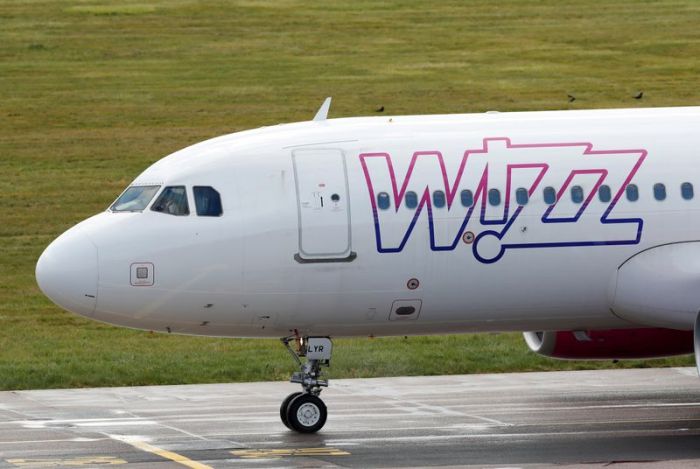LONDON (Reuters) -Deliveroo said a more-than doubling in first quarter orders during coronavirus lockdowns was an initial step in proving itself following the debacle of the food delivery company’s London flotation last month.
“We have a lot of work ahead of us to both grow the business over the long term, and prove ourselves to the markets,” Chief Executive Will Shu said. “It is day one of doing that.”
Growth accelerated for a fourth consecutive quarter, with group orders up 114% year-on-year to 71 million and gross transaction value (GTV) up 130% year-on-year to 1.65 billion pounds ($2.27 billion), the company said.
But it was difficult to know how much demand was driven by cafes and restaurants closing their doors in COVID-19 lockdowns. Deliveroo said it expected growth to slow as restrictions eased.
“We are mindful of the uncertain impact of the lifting of COVID-19 restrictions,” Shu said in an interview. “We wanted to be prudent when it comes to guidance.”
He said, however, that strong demand in markets such as Hong Kong and the United Arab Emirates, where lockdowns have been lifted, indicated what could happen in other countries.
Deliveroo maintained guidance for full-year GTV growth of 30-40% and gross profit margins of 7.5-8.0%.
Rival Just Eat Takeaway.com said on Wednesday Britain had been a “standout” in the first quarter, and it was pulling away from competitors, namely Deliveroo and Uber Eats.
Shu, however, said Deliveroo was “incredibly proud” of its performance in Britain and Ireland. “We feel great about our market position,” he said.
Grocery delivery, in partnership with supermarkets Waitrose, Aldi, Coop, Morrisons and Sainsbury’s, expanded at pace, he added, with GTV growing by more than 700% to represent more than 10% of UK GTV.
IPO FLOP
Deliveroo’s flotation was supposed to be London’s debut of the decade, but the stock plunged 30% on the first day, wiping more than 2 billion pounds from the company’s initial 7.6 billion pound valuation.
The shares were down 2% to 265 pence on Thursday morning, 31% below their IPO price of 390 pence.
Some of Britain’s biggest investment companies shunned the listing, citing concerns about gig-economy working conditions.
Shu said the self-employed rider model had been upheld by courts in Britain, France and Italy.
“I’m not wedded to any particular model,” he said. “However I am wedded to the model that riders want.”
($1 = 0.7260 pounds)
(Editing by Jane Merriman and Mark Potter)





















